Unraveling the Truth: Is Keurig Coffee Bad for You? Health Insights
Have you ever wondered, “Is Keurig coffee bad for me?” Well, you’re not alone. As a devoted Keurig user myself, I too questioned the potential impact on my health and our planet’s well-being. As with all things, it’s important to be aware and make informed decisions for our health and environment.
In this article, you’ll find all your burning doubts clarified. We’ll plunge into the unknown and unveil the potential risks linked to the beloved Keurig coffee, from concerning chemicals in plastic parts to destructive environmental effects of non-recyclable K-cups. Plus, we’ll explore if there could be detrimental residues lurking in your non-organic coffee.
Remember, knowledge gives you the power to choose wisely. So, are you ready to discover the hidden truths about your morning’s easy caffeine fix? It’s time to decide if convenience is truly worth the risks.
The Hidden Truth Behind the Keurig Coffee Popularity
Overview of Keurig Coffee Machines and the Popularity of Their Single-Serve Coffee Pods
Keurig coffee machines have truly changed how we get our daily caffeine fix. It’s fascinating how these single-serve brewers make coffee preparation so quick and fuss-free. No more guessing how much coffee to put in, no mess from filters. Every cup promises the same flavor—no surprises there. This ease and reliability have made Keurig a beloved brand in so many homes and offices.
Keurig Coffee is Highly Convenient but Has Several Negative Impacts on Health and the Environment
Convenience, however, comes at a cost. There’s been ongoing scrutiny about whether Keurig coffee might be bad for you and the environment. Those single-serve K-Cups? They’re mostly plastic. And when plastic gets hot, it can release harmful chemicals like BPA, BPF, and BPS. These can mess with your hormones and potentially lead to health issues. And let’s not forget the environmental toll. Many K-Cups aren’t recyclable, adding to our growing plastic waste problem.
Discussion of Concerns About the Quality of Coffee Produced by Keurig Machines
There’s also a debate about the quality of coffee from Keurig machines. Critics often point out that coffee from K-Cups might not be as fresh or tasty as what you’d get from a traditional brew. The coffee inside those pods is pre-ground and can oxidize, losing its flavor over time. There’s also worry about additives and artificial flavors in some K-Cups, which might raise questions about the healthiness of drinking Keurig coffee regularly.
Balance with Benefits, Such as Convenience and Variety of Coffee Types
Despite these concerns, it’s hard to ignore the benefits that make Keurig so popular. The variety you can get is unmatched—flavors and coffee types galore, all at your fingertips. For someone with a busy schedule, the convenience of making a quick cup without any hassle is a major win. So, even with the health and environmental drawbacks, the sheer convenience and choice continue to keep Keurig machines in high demand.
Health Risks Linked with Keurig Coffee Consumption
Keurig coffee has become a convenient staple in many homes, but what are the hidden health risks associated with its consumption? From toxic plastics to hazardous residues, understanding these risks is essential for making informed choices.
The Danger of Toxins Emanating from Its Plastic Components
BPA, BPF, and BPS: Hormone-Disrupting Chemicals in Plastics
Did you know that the plastic in K-Cups could disrupt your hormones? For more information on how plastics can leach hazardous chemicals, including endocrine-disrupting chemicals (EDCs) that threaten human health, you can learn more here. Despite Keurig’s assurance that their cups are BPA-free, these plastics often contain other chemicals like BPF and BPS, which can still wreak havoc on your hormone levels. Even plastics marked with number 7, notorious for their chemical leaching, are used. When exposed to hot water, these plastics can release harmful chemicals, leading to potential estrogen disruptions and fertility issues.
The Role of High Heat in Plastic Chemical Leaching
The high temperatures used in Keurig machines can cause the plastic components to release carcinogenic chemicals, such as polystyrene, into your coffee. This process can also release estrogen-mimicking compounds, potentially affecting your hormonal balance. The question of whether Keurig coffee is bad for you isn’t just about taste—it’s also about these hidden chemical threats that could pose serious health risks.
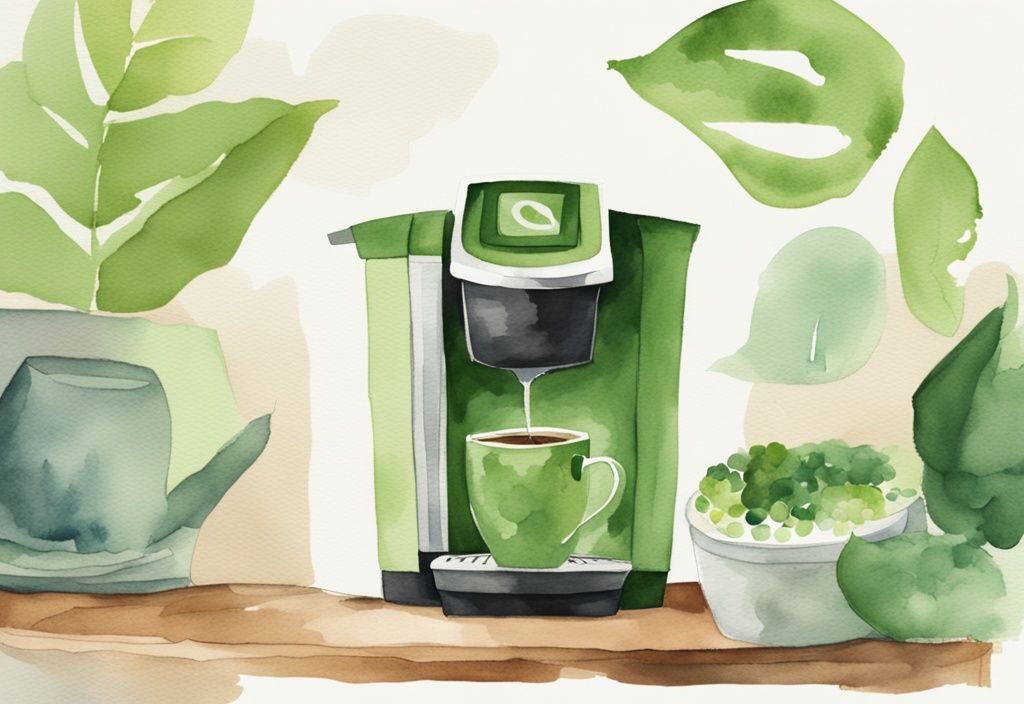
Hazardous Residues from Non-Organic Coffee Beans
Navigating Through the Pesticides and Herbicides in Coffee Beans
Ever considered what’s on your coffee beans? Non-organic coffee beans used in many K-Cups are treated with pesticides and herbicides. These chemicals linger as residues, posing long-term health dangers. Glyphosate, a common pesticide, is even classified by WHO as “probably carcinogenic.” Such toxic residues certainly make one ponder about the safety of Keurig coffee.
The Impact of Glyphosate and Mycotoxins on Your Health
It’s not just pesticides. Glyphosate and mycotoxins found in non-organic coffee beans add another layer of risk. Both are linked to cancer and other severe health issues. This combination of toxic residues paints a worrying picture, raising significant concerns about the health implications of Keurig coffee when non-organic beans are involved.
Dangers of Ingredients Added in Keurig Coffee
The Unhealthy Side of Sugar, Creamers, and Artificial Flavors
Many K-Cups don’t just contain coffee—they’re loaded with sugar, creamers, and artificial flavors. While these additives make your coffee taste delicious, they come with a health cost. High sugar levels can lead to weight gain and metabolic issues. Artificial additives and flavors may pose additional, sometimes hidden, risks, detracting from the healthiness of plain black coffee.
Understanding Artificial Sweeteners and Associated Health Risks
Artificial sweeteners are often added to enhance flavor but at what cost? Research links these sweeteners to potential risks like cancer and other health problems. Their presence in Keurig coffees only adds to the list of concerns. These sweeteners might make your morning brew taste better, but they could be affecting your long-term health in unseen ways.
Why the Aluminum in K-Cups Should Worry You
Gauging the Health Risks Posed by Heated Aluminum
Finally, let’s talk about aluminum. The tops of K-Cups are made from aluminum, which can pose health risks when heated. The connection between heated aluminum exposure and brain-related issues is especially concerning. This highlights another critical aspect you should consider when questioning if Keurig coffee is bad for you. The potential health implications of aluminum exposure make it clear that there are several hidden risks in your seemingly convenient cup of coffee.
The Underrated Environmental Impacts of Keurig Coffee
Confronting the Plastic Menace: Keurig’s Non-Recyclable Waste
K-Cups have become a significant environmental issue, generating substantial plastic waste that isn’t fully recyclable. Due to their composite plastic material, they often end up in landfills, contributing to pollution and waste. Alarmingly, in 2014 alone, enough K-Cups were sold to circle the globe 10.5 times. This staggering statistic highlights the pressing question: is Keurig coffee bad for you and the environment?
The non-recyclable nature of K-Cups stems from their complex construction, which typically includes a mix of plastic, aluminum, and paper. This blend makes it difficult for conventional recycling processes to handle, leading to a greater accumulation of waste. Environmentalists point to Keurig’s products as a significant contributor to plastic pollution, prompting scrutiny and calls for more sustainable practices.
Keurig’s Proposed Path to Sustainability: Is It Enough?
In response to growing environmental concerns, Keurig committed to making their cups recyclable by the end of 2020. This effort involves the use of BPA-free polypropylene—a type of plastic deemed safer for health and easier to recycle. However, the efficacy of this solution remains debatable. Proper cleaning and disposal of K-Cups remain complex and cumbersome for consumers, often leading to improper recycling practices.
Recent initiatives to make K-Cup pods recyclable could mitigate some of the health and environmental concerns linked to their widespread use. However, these measures may not be sufficient to fully address the deeper issue at hand. The question persists: is Keurig coffee bad for you when considering both individual health and the broader ecological impact? To broaden your understanding of product safety, you might also be curious about are Hexclad pans non toxic and their potential health implications.
Despite these efforts, the need for a broader, more impactful approach to sustainability is clear. Consumers are encouraged to opt for more eco-friendly alternatives, such as reusable pods, which can significantly reduce both waste and chemical exposure. The adoption of these alternatives can play a crucial role in addressing the environmental challenges posed by Keurig coffee.
Keurig Coffee vs Traditional Coffee: A Health Perspective
When considering the health implications of different coffee brewing methods, Keurig coffee and traditional coffee both come with their pros and cons. From flavor and freshness to nutritional content, how these factors impact your well-being should be carefully weighed.
Flavor and Freshness Comparison
From my personal experience, the flavor and freshness of traditionally brewed coffee often surpass that of Keurig coffee. The ground coffee in K-Cups tends to degrade due to oxidation, noticeably impacting the taste over time. This happens because K-Cups are pre-ground and sealed, which doesn’t preserve the coffee’s freshness as effectively as grinding whole beans right before brewing does.
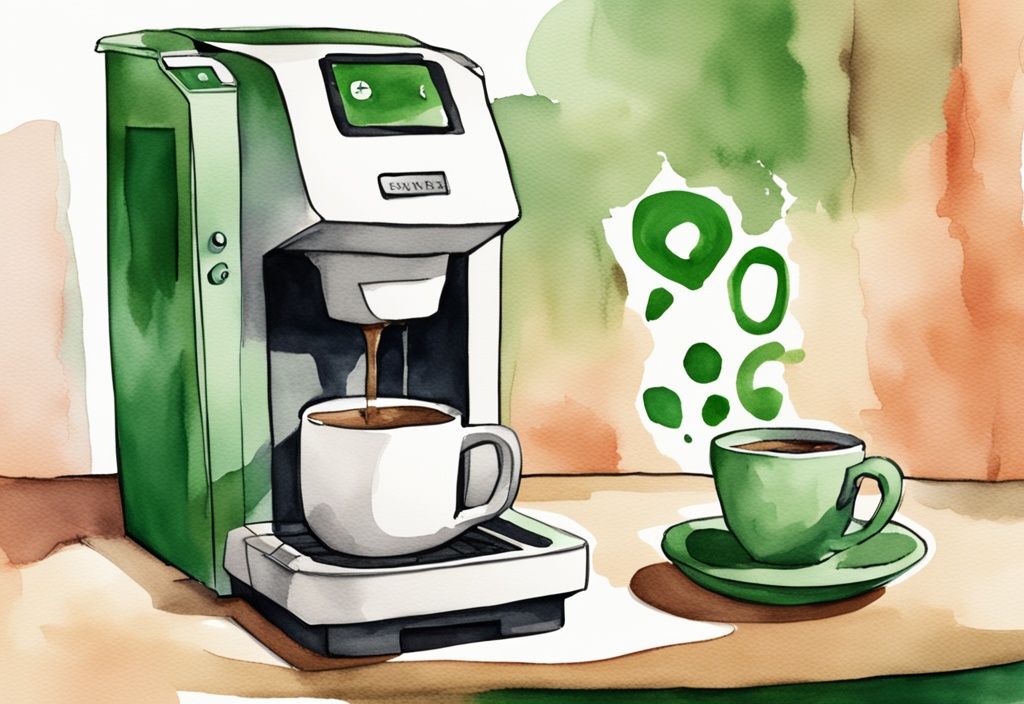
The plastic pods in Keurig machines can also contribute to a slightly off taste, detracting from the quality of your brew. On the other hand, fresh, organic brewed coffee retains its natural oils and robust flavors, offering a richer drinking experience. With traditional brewing methods, you can control the grind size and preparation, allowing for a more personalized and delightful cup. Considering these points, fresh, organic brewed coffee often provides a more satisfying experience than the convenience of K-Cups.
Nutritional Discrepancies You Should Know
The nutritional profile is another aspect where Keurig coffee may fall short compared to traditionally brewed coffee. The single-serve brewing process of Keurig often leads to a decrease in essential nutrients like antioxidants, known for their numerous health benefits. Traditional brewing methods, such as using a French press or a drip coffee maker, generally preserve more of these beneficial compounds, making each cup more nutritious.
Additionally, the caffeine content in each Keurig pod can vary, making it challenging to regulate your intake. Overconsumption of caffeine can lead to issues such as insomnia, increased heart rate, and anxiety. Traditional brewing methods allow for more consistent caffeine levels, providing better control over your consumption. Awareness of these nutritional discrepancies is vital for making informed decisions about your coffee habits.
If health benefits and flavor are your priorities, traditional coffee brewing methods are generally recommended over the convenience of K-Cups. By making mindful choices, you can enjoy a more satisfying and nutritious cup of coffee.
How You Can Reduce the Risks of Keurig Coffee
Choosing the Organic, Dark-Roasted Coffee Route
To minimize health risks associated with Keurig coffee, consider switching to organic, dark-roasted coffee. Organic coffee beans are grown without synthetic pesticides and chemicals, thus reducing potential exposure to harmful substances. Moreover, dark roasting further helps to diminish some harmful compounds while retaining beneficial antioxidants.
Switching to organic doesn’t just mean healthier coffee; it’s about prioritizing your well-being. Limiting coffee intake also plays a crucial role in maintaining overall health. Excessive consumption can lead to various health issues, so finding a balance is key for a healthier coffee habit.
Exploring Reusable and Eco-Friendly Keurig Alternatives
For a healthier and more sustainable option, reusable K-cups are highly recommended. These pods allow you to select your preferred organic coffee, reducing exposure to harmful chemicals often found in single-use plastic pods.
Opting for reusable options significantly cuts down on plastic waste and addresses issues related to chemical leaching from heated plastics. Over time, this small change can contribute to personal health improvements and environmental preservation. It’s a win-win for both you and the planet.
How Regular Cleaning and Maintenance Mitigate Risks
Regularly cleaning and maintaining your Keurig machine is essential for minimizing health risks. Unclean machines can harbor bacteria and mold, posing potential health hazards. Establishing a regular cleaning routine, including descaling the machine and sanitizing all removable parts, helps prevent bacterial growth.
Using filtered water is also beneficial, as it reduces the risk of harmful chemical buildup. Ensuring a cleaner, more refreshing cup of coffee every time. Consistent maintenance is key to keeping your coffee experience both safe and enjoyable.
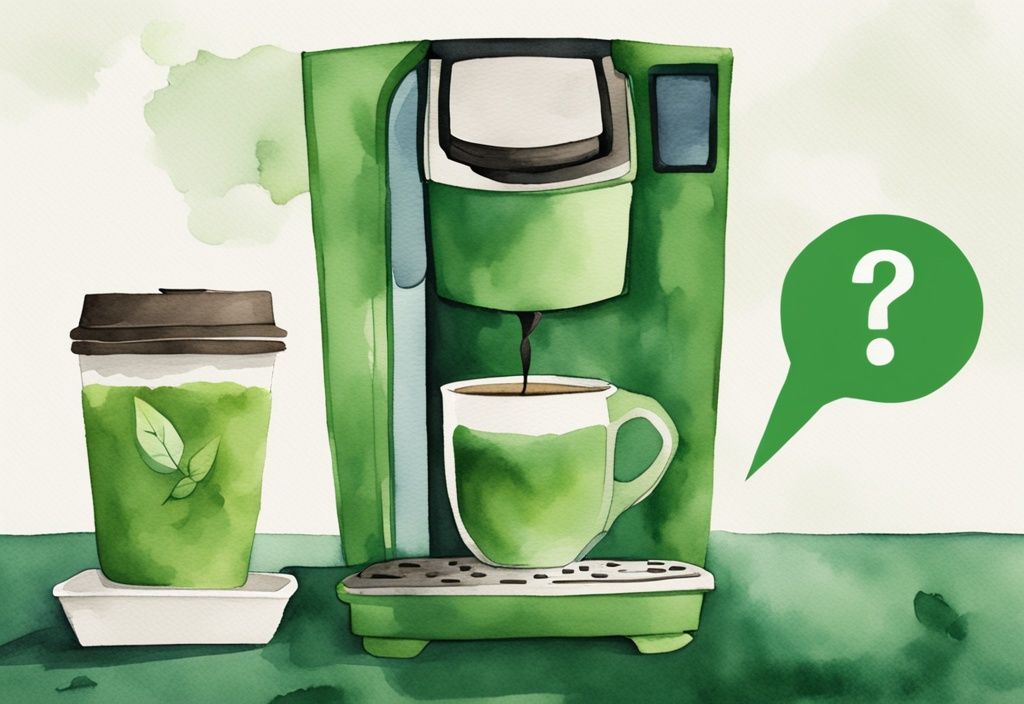
Conclusion
Keurig coffee has rapidly become a household favorite due to its convenience and a vast array of coffee options. But asking, “Is Keurig coffee bad for you?” means we must delve into its health and environmental impacts.
Let’s talk health first. Keurig machines use plastic K-Cups, which, although advertised as BPA-free, might contain other chemicals like BPF and BPS. These substances can potentially disrupt hormones, especially when exposed to high heat. It’s alarming to think that such chemical leaching could lead to health concerns like hormonal imbalances.
Another aspect is the coffee itself. Many K-Cups use non-organic beans treated with pesticides, herbicides, and other chemicals. Regular consumption could pose long-term health risks, including cancer. I’ve often wondered about the hidden dangers every time I brew a cup.
Then there are the added ingredients. Some K-Cups are loaded with sugar, creamers, and artificial flavors. While these may enhance taste, they can contribute to weight gain and other health issues. Artificial sweeteners, found in flavored pods, also raise concerns about their potential carcinogenic effects. It made me rethink my flavored coffee choices.
The environmental impact also looms large. K-Cups are notorious for generating substantial plastic waste, with millions piling into landfills each year. Though recyclable options are emerging, they’re far from perfect and haven’t entirely solved the landfill problem.
Considering these factors, it’s essential to make conscious choices. Opting for organic, dark-roasted coffee can reduce exposure to harmful chemicals. Why not try reusable pods? They’re a fantastic way to cut down on waste and keep your Keurig cleaner, reducing the risk of chemical leaching.
So, does the convenience of Keurig coffee balance out its health and environmental downsides? While its ease of use and variety are tempting, weighing these against the risks is crucial. By making smarter choices—like choosing organic coffee and using reusable pods—you can enjoy your coffee with less worry, achieving a harmony between convenience and well-being.
Remember, every cup is an opportunity to make a better choice for your health and our planet.
FAQs: Answering Your Keurig Coffee Concerns
Are Keurig Coffee pods a Source of Harmful Chemicals?
The concern about Keurig coffee pods largely revolves around the chemicals in the plastic components. Yes, Keurig asserts that their pods are BPA-free, but other chemicals like BPF and BPS may still seep into your cup. The heated aluminum tops can also raise potential health risks. This debate over the safety of these materials is still ongoing, and it’s important to stay informed.
Any Health Benefits of Using a Keurig Coffee Maker?
The primary health benefit of a Keurig coffee maker lies in its sheer convenience and variety. You can brew a diverse range of coffee types quickly, which is fantastic for those short on time or looking for variety. However, in terms of substantial health benefits compared to traditional brewing methods, those are fairly limited.
What Eco-friendly K-Cup Alternatives Are Available?
One of the most eco-friendly options is to switch to reusable K-cups. This choice significantly cuts down on plastic waste and reduces chemical exposure from single-use pods. Additionally, you can explore biodegradable pods and even revert to traditional brewing methods for a more sustainable option.
How Can You Minimize the Health Risks Associated with Keurig Coffee?
Minimizing health risks with your Keurig coffee involves a few simple steps. Opt for organic coffee and make sure to use filtered water. On top of that, using reusable pods, cutting down on added sugars and artificial flavors, and cleaning your Keurig machine regularly can dramatically reduce potential health concerns. Regular maintenance can also help minimize bacterial and mold growth, ensuring your coffee is as safe as possible.
Hi, I’m Olivia Green, the voice behind nontoxicways.com. I’m passionate about helping you make the shift to a healthier, non-toxic lifestyle without feeling overwhelmed. I love sharing my personal journey, from small changes to big transformations, along with practical tips that make it all feel doable. My goal is to inspire and guide you toward a lifestyle that benefits both your well-being and the planet. Let’s take this journey together, one simple step at a time!
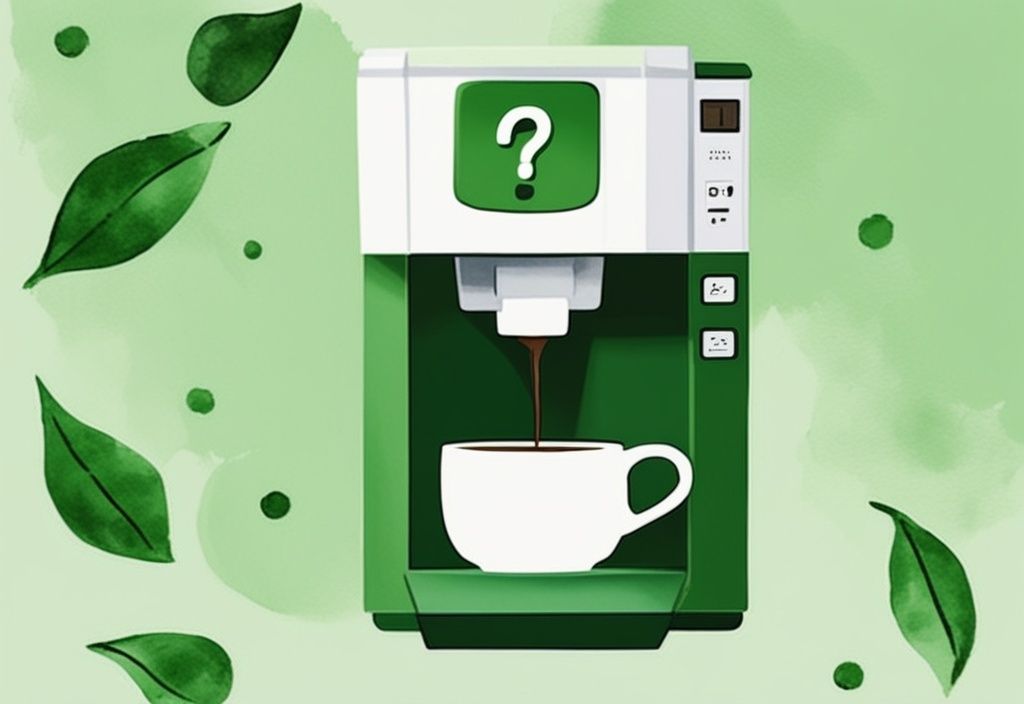
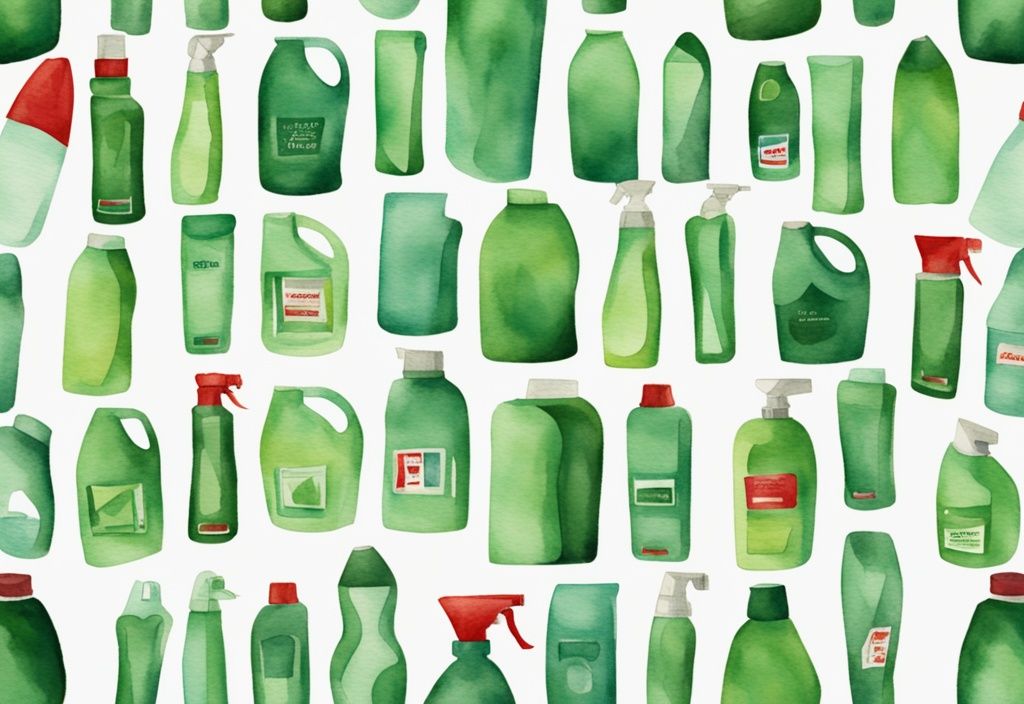

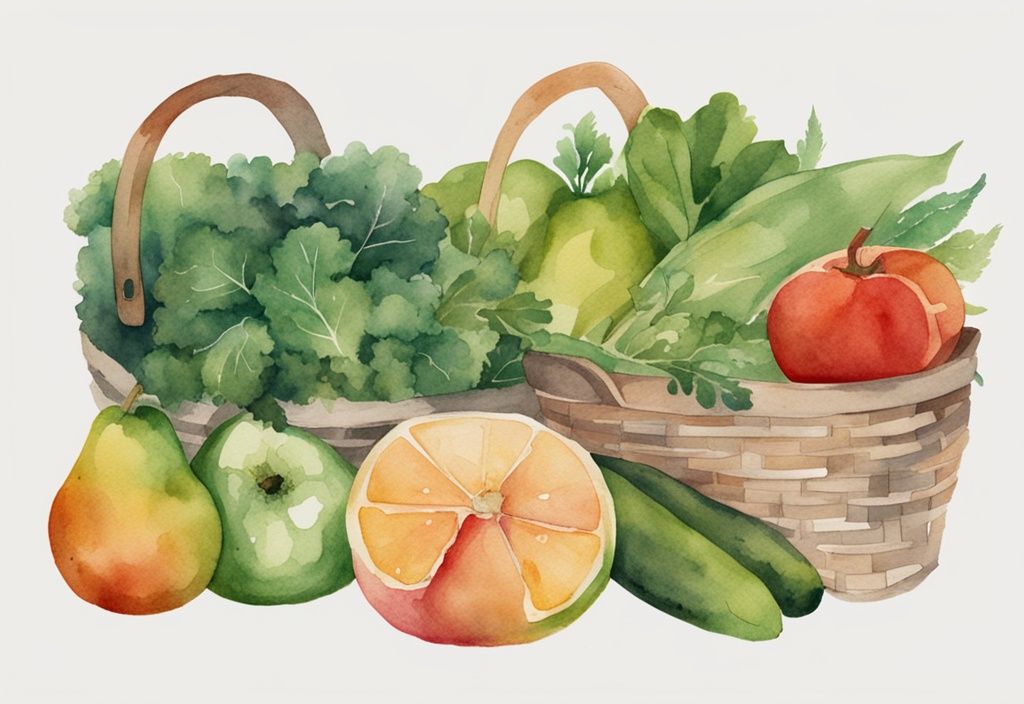
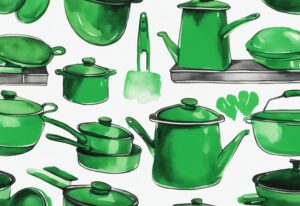



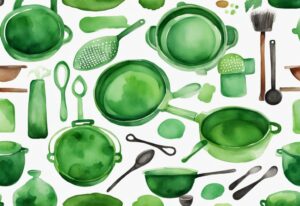
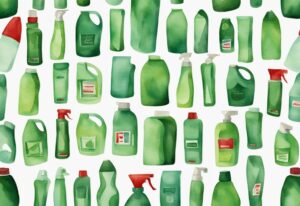


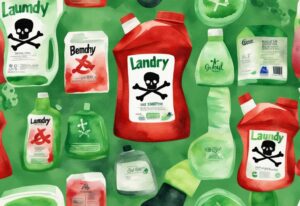
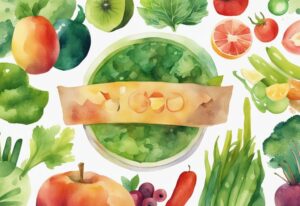
Post Comment